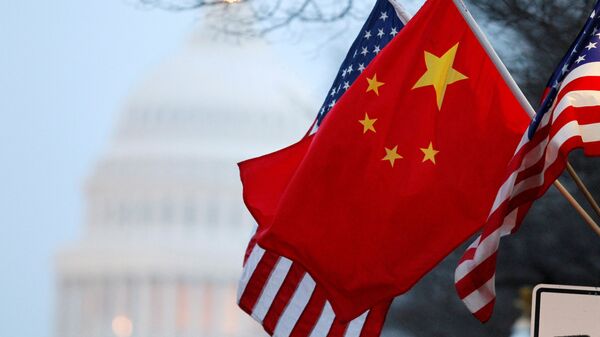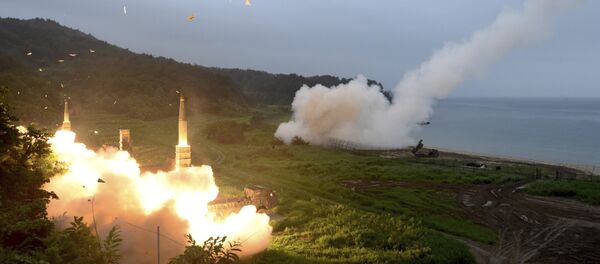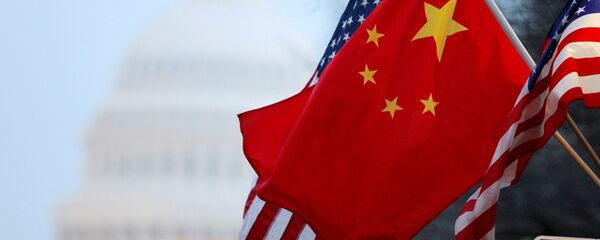Tensions around North Korea have been particularly high over the recent months due to the country's numerous ballistic missile tests. The most recent provocation was the reported launch of an intercontinental ballistic missile (ICBM) on Friday.
CHINA’S LIMITS/RELUCTANCE
Citing sources from the US administration, the outlet suggested that a final decision on the possible punitive measures, including trade restrictions, was expected as soon as this week.
"China has only a limited ability to get North Korea to give up these [nuclear] programs, which the regime believes are necessary for its survival," Independent Institute Center for Peace & Freedom Director Ivan Eland told Sputnik on Tuesday.
Sanctions, Eland added, probably will not convince China to "economically strangle" North Korea because Beijing is afraid that if Pyongyang collapses there will be a flood of refugees and a united Korea "with US bases right on its border."
"North Korea is paranoid about the US attacking or invading it, as the US did with non-nuclear Iraq and Libya," he noted.
Such US-imposed sanctions will merely invite Beijing's retaliation, he claimed, while backfiring on the US domestic economy.
"It is too late to stop North Korea from getting a nuclear weapon and long-range missile that can carry it to the US. The only policy left is to use nuclear," he concluded.
LACK OF ENFORCEMENT
Retired Brown University Assistant Professor of Economics Barry Friedman told Sputnik that the US government was not prepared to enforce the massive sanctions against the North Korea regime that Trump appeared to have in mind.
"There is no body to collectively enforce these sanctions or bring evidence of non-compliance. This could be problematic… blanket sanctions on China would probably be unworkable," he said.
The US government would need the help of the Chinese government to effectively enforce sanctions on North Korea and bring economic pressure to bear on Pyongyang but that would not be forthcoming if the US was already targeting China instead, Friedman observed.
However, the United States could impose sanctions on specific Chinese industries if it could present a credible case for them, Friedman conceded.
The Trump administration could apply "a case-by-case approach on trade: Unilateral, perhaps in addition to bringing flagrant cases of predatory pricing to the WTO. This makes sense if the Chinese government is targeting specific industries that they want to develop with large export orders," he said.
However, such policies could also backfire, Friedman cautioned.
Chinese Vice Minister of Commerce Qian Keming called on the United States on Monday to refrain from discussing the settlement of the North Korean nuclear issue within the context of Chinese-US bilateral trade.
On Sunday, US President Donald Trump condemned China for "doing nothing" to help Washington in solving the North Korean nuclear issue despite "making hundreds of billions of dollars a year" in bilateral trade with the United States. On the same day, US Ambassador to the United Nations Nikki Haley urged China to "take a vital step" in resolving the issue.
North Korea’s ICBM test was condemned by many countries, including the United States, which urged the international community to support the United Nation's anti-Pyongyang sanctions, which were imposed over its nuclear program.



